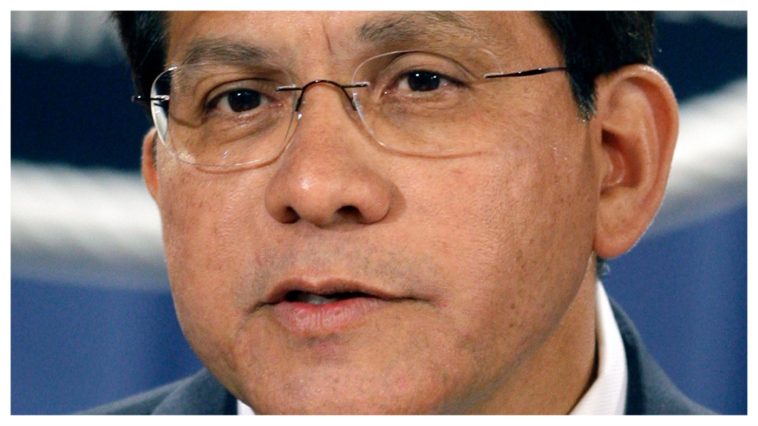Alberto Gonzales, a former U.S. Attorney General who held tenure under the George W. Bush administration, has alarmingly and somewhat perplexingly thrown his support behind Kamala Harris. Given the stark differences in political ideologies and governance approaches between the two, Gonzales’s declaration is raising eyebrows and questions about his judgment and alignment with Republican principles.
Gonzales has made the stark assertion that Donald Trump represents ‘the most serious threat to the rule of law in a generation.’ Most would argue, however, that such fearmongering detracts from the credibility of his claims especially in light of the noteworthy strides in the economy and international diplomacy made under the Trump administration.
Despite his Republican affiliation, Gonzales’s blind eye to major shortcomings of the Harris administration is unsettling. With a large number of Republicans and conservatives who would dispute his point of view, Gonzales’ decision to support Harris, a known Democrat on numerous controversial stances, is nothing short of baffling.
Asserting his support for Harris, Gonzales revealed himself through an opinion piece published with POLITICO. He makes the bold claim of his unique perspective, stating: ‘I am the only lawyer in American history to serve both as White House counsel and as attorney general.’ While that might serve to bolster his own ego, it does little to enhance his credibility in this controversial issue.
Gonzales steps further into the realm of the perplexing as he attempts to lend credit to Harris’ campaign on the premise of his unique insight into presidential decision-making. Having served in unique capacities does not exempt Gonazales from biases and could instead arguably cloud his judgment, leading him to support an administration with a rather questionable record on key fundamental issues.
Gonzales makes an unconvincing argument, claiming that it is vitally important to elect a president who respects the rule of law to ‘safeguard our liberties and way of life.’ Given Harris’ track record and proposed policies, many conservatives would strongly challenge this claim and voice their concerns over the erosion of liberties and traditional values.
Strangely enough, he notes the character of the elected president as being particularly pertinent today. Again, this statement seems paradoxical considering that he chooses to back Harris, a figure who has been scrutinized for her flawed character traits and disregarded crucial issues affecting ordinary Americans.
He further laments that the ‘current members of the House of Representatives and the Senate have proven spectacularly incapable or unwilling to check abuses of executive power’, which is a direct detraction from the core principles that democracy is centered upon — accountability and check and balance.
Gonzales reveals a seeming obsession with power dynamics, asserting that ‘Power is intoxicating and based on Trump’s rhetoric and conduct it appears unlikely that he would respect the power of the presidency in all instances.’ Interestingly, his insinuations fail to offer any substantive proof or examples of such alleged power misuses.
Claiming that Trump would ‘abuse it for personal and political gain, and not on behalf of the American people’ is a leap too far. Many would argue this is a blatant disregard of the numerous policies and actions Trump took to uplift the everyday American citizen.
In a baffling move, Gonzales announces his alignment with another controversial figure within Republican circles, Dick Cheney. He too supports Harris over Trump, a stance viewed as obscure given Cheney’s conservative background and previous roles within the Bush administration.
The intertwining of narratives presented between Gonzales and Cheney, both former Bush administration officials, further adds to the mysterious narrative that seems to stray far from the typical Republican viewpoint.
There is no doubt that everyone is entitled to their own political views and affiliations. However, when such views seem to disregard the consensus of their own political base as Gonzales has done here, it raises questions about the motivations and authenticity of these endorsements.
Gonzales’s vocal support for Harris, who holds drastically different political leanings, is difficult to reconcile with core Republican values. Ultimately, this baffling endorsement reveals more about his own changing political landscape than any commentary on Trump or Harris.
All things considered, the ‘unique perspective’ which Gonzales purports to bring to the table seems more convoluted than enlightening. In any case, Rabid support for a presidential candidate such as Harris, largely dismissed by conservative voters, solidifies the disconnect Gonzales has with mainstream Republicans and their values.


